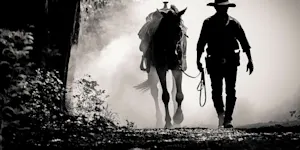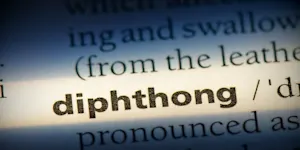What Makes This Word Tick
"Pitiable" serves as a slightly gentler cousin to words like "pathetic" or "miserable." It's typically used to describe situations or creatures that inspire compassion or sorrow. When you hear "pitiable," think of a bedraggled kitten caught in a rainstorm—the kind of image that pulls at the heartstrings.
If Pitiable Were a Person…
Imagine a character from a Charles Dickens novel—frail, with woeful eyes and a threadbare jacket. This person continually finds themselves in unfortunate situations but maintains an endearing innocence that makes you wish to help them.
How This Word Has Changed Over Time
While the basic meaning of "pitiable" hasn't shifted much over the years, the nuance in how we use it has certainly evolved. In the past, it might have been used more bluntly, with a heavier implication of contempt. These days, you're likely to find it used with a softer, more empathetic tone.
Old Sayings and Proverbs That Use Pitiable
Though not commonplace in proverbs, the essence of "pitiable" appears in sayings like "spare the rod, spoil the child," where discipline—or lack of it—leads to pitiable outcomes. The concept echoes in various cultural maxims across the globe.
Surprising Facts About Pitiable
Did you know that "pitiable" has Latin roots? It comes from the Latin word "pietas," which means a sense of duty or compassion. Even back in Roman times, it was tied to feelings evoking sympathy.
Out and About With This Word
In everyday conversation, "pitiable" might describe a colleague’s lunch disaster or a friend’s attempt at karaoke. It’s perfect for those moments that evoke both humor and a touch of compassion—like that time Aunt Mabel tried Zoom for the first time.
Pop Culture Moments Where Pitiable Was Used
You might recall the movie "Oliver Twist" where pitiable characters abound. Film and literature are rich with downtrodden souls living pitiable lives, from the scraping tunes of Les Misérables to the sobering gaze of Hachiko—a story of a dog’s undying loyalty.
The Word in Literature
"Pitiable" finds a cozy home in Victorian literature, amidst the cobblestones and sooty chimneys. The works of Charles Dickens, again, spring to mind, filled with characters whose circumstances may stir a reader’s pity.
Moments in History with Pitiable
The Great Depression serves as a historical backdrop drenched in pitiable tales. Bread lines and dust bowls painted a landscape both heartbreaking and humbling, evoking a global sense of shared hardship and compassion.
This Word Around the World
In Spanish, “pitiable” could translate to "lamentable," while in French, it's "piteux." Across cultures, the word conveys a similar blend of sadness and empathy, though its emotional weight might vary depending on local idioms and expressions.
Where Does It Come From?
Tracing its lineage back to Latin, "pitiable" channels the word "pietas." Originally capturing complex notions of duty and piety, it gradually shifted to represent the feelings of compassion or sorrow it evokes today.
How People Misuse This Word
Some people confuse "pitiable" with "pitying," mistakenly turning the subject of sympathy into the one offering it. It's important to remember that "pitiable" denotes the unfortunate, rather than the kindly observer.
Words It’s Often Confused With
Pitiful: While both indicate sympathy, "pitiful" has a sharper edge and may suggest contempt.
Pitying: As mentioned, this indicates the action of feeling pity, not being in a pitiable state.
Pathetic: Often carries a more negative connotation, suggesting weakness.
Additional Synonyms and Antonyms
For synonyms, consider "lamentable" or "woeful." Antonyms could include "fortunate" or "prosperous," which paint a picture of sunnier prospects and more favorable circumstances.
Want to Try It Out in a Sentence?
"The young man's threadbare coat and thin, trembling hands presented a pitiable sight as he waited in line at the soup kitchen."
















